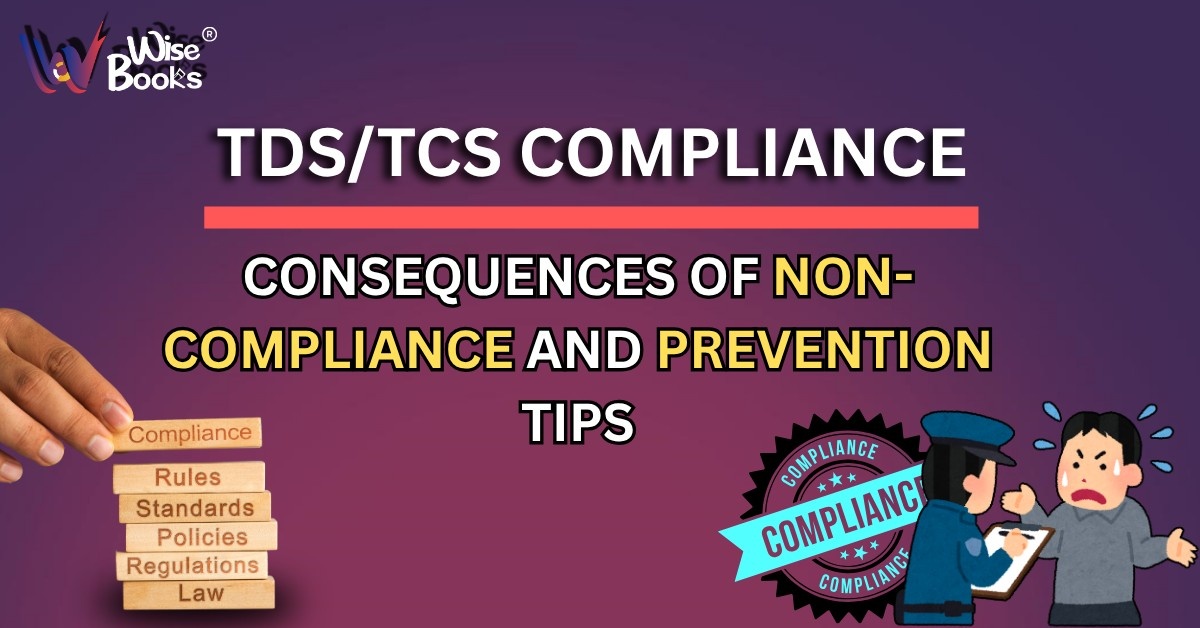Consequences of Non-Compliance in TDS/TCS and How to Prevent Them
Tax Deducted at Source (TDS) and Tax Collected at Source (TCS) are essential elements of India’s tax system. These measures ensure the timely collection of tax and help the government maintain a steady flow of revenue. However, non-compliance with TDS and TCS regulations can lead to significant financial and legal repercussions for businesses.
1. Financial Penalties
One of the immediate effects of non-compliance is financial penalties. When businesses fail to deduct or collect the correct amount of tax, they are liable to pay interest on the delayed remittance. The interest is generally charged at a rate of 1-1.5% per month on the outstanding amount. This can quickly add up and impact a company’s cash flow.
2. Late Filing Fees
Section 234E of the Income Tax Act imposes a late filing fee for delayed submission of TDS/TCS returns. The fine can amount to ₹200 per day for each day of delay, up to the total amount of TDS/TCS payable. This fee is charged in addition to any penalties or interest, which can further burden the organisation.
3. Disallowance of Expenses
Another significant consequence is the disallowance of expenses related to TDS under Section 40(a)(i) and Section 40(a)(ia) of the Income Tax Act. If TDS is not deducted or deposited timely, the expenses on which tax was to be deducted may be disallowed, leading to a higher taxable income and additional tax liabilities.
4. Prosecution and Legal Actions
In extreme cases, repeated non-compliance or wilful default can lead to prosecution under Section 276B of the Income Tax Act. The defaulter may face rigorous imprisonment for a term ranging from three months to seven years, along with fines. This can severely damage the reputation of the business and its management.
How to Prevent Non-Compliance
1. Timely Deduction and Payment
Ensure that tax is deducted at the correct rates and paid on time to the government. This requires establishing a reliable system that tracks all transactions where TDS or TCS is applicable. Regular monitoring will help avoid oversight and ensure compliance.
2. Accurate Filing of Returns
File TDS/TCS returns within the prescribed deadlines to avoid late fees. Businesses should maintain organised records and use appropriate software to ensure the accuracy and timeliness of their filings. Setting up automated reminders or engaging with tax professionals can further help in preventing missed deadlines.
3. Regular Reconciliation
Regular reconciliation of TDS/TCS statements with the books of accounts is critical. This helps to identify discrepancies early and rectify them before filing returns, avoiding any complications later on.
4. Engage Qualified Professionals
Hiring qualified tax consultants or accounting professionals can significantly reduce the chances of non-compliance. Their expertise ensures that the business adheres to all applicable regulations and avoids penalties.
5. Use of Technology
Incorporating accounting software and automation tools can assist in tracking, calculating, and filing TDS/TCS accurately. These tools help in generating timely reminders for due dates and streamline the entire process.
Conclusion
Non-compliance with TDS and TCS regulations can result in serious financial losses and legal consequences. Businesses must take proactive measures by ensuring timely deductions, accurate filings, and regular reconciliations. Engaging professionals and leveraging technology can further safeguard companies from the risks associated with non-compliance, protecting their financial stability and reputation.



Comments
No comments yet. Be the first to comment!